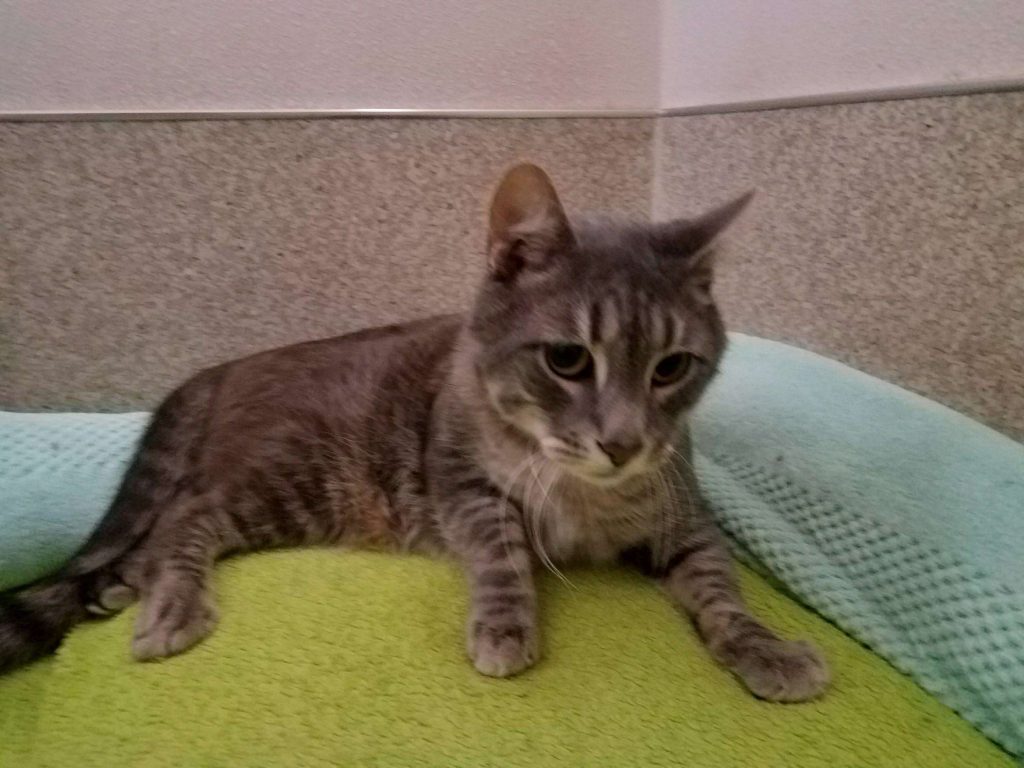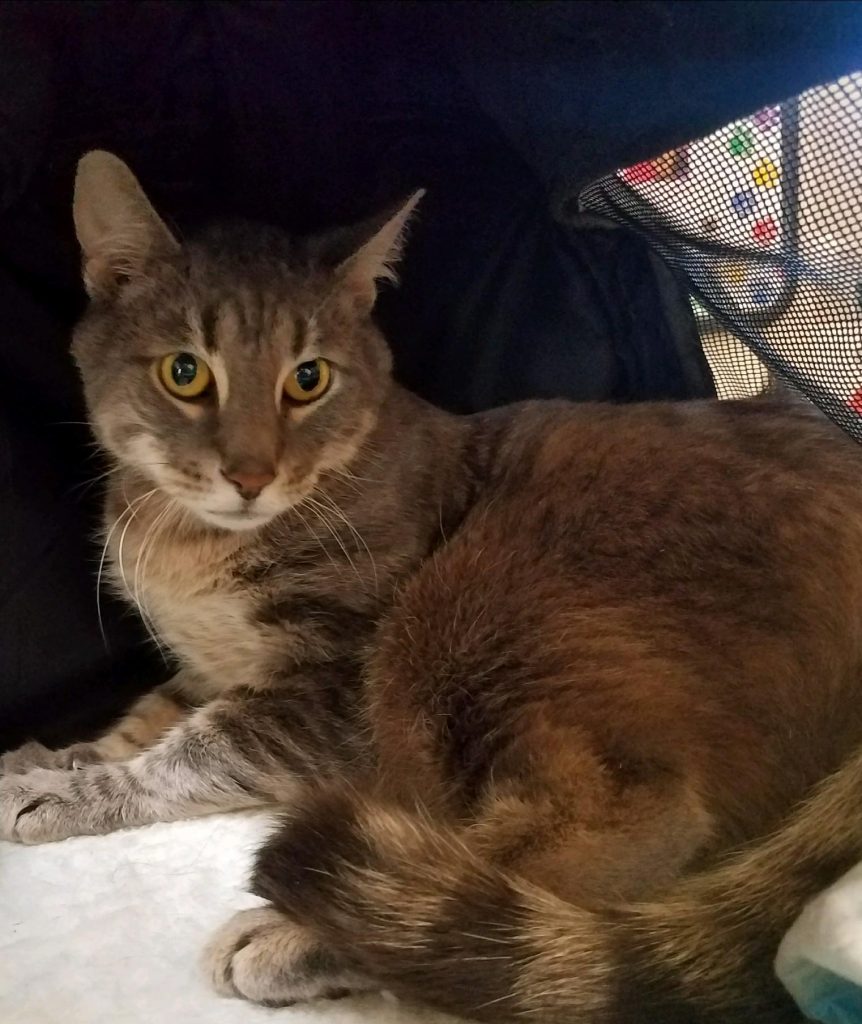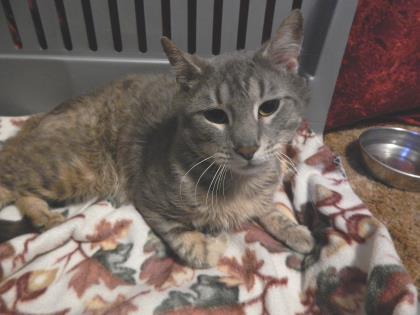How far will Lycoming County SPCA staff go to give a pet his best quality of life? Read below to find out:

Hudson, aka “Charlie,” beginning his physical therapy in January at Best Friends Animal Sanctuary in Utah.
We knew him as Charlie.
His mother contracted feline distemper while pregnant with Charlie, and because of this, he was born with cerebellar hypoplasia. Cerebellar hypoplasia is a condition where the cerebellum, the part of the brain which controls fine motor skills and coordination, is not completely mature at birth. Like ataxic cerebral palsy in humans, CH causes jerky movements, tremors, and a generally uncoordinated motion. In Charlie, this meant he was unable to use his back legs properly. He was a tough little nut, though, and survived kittenhood. He developed his own way of walking – a sort of flip-flop method that got him wherever he wanted to go. Charlie had a dedicated owner who cared for him for the first four years of life, but in the end, his owner felt he did not have enough time to care for Charlie’s specific needs. Often cats with mobility issues cannot express their bladders and are unable to make it to the litterbox. Charlie did not need help expressing his bladder, but he was unable to make it to the litterbox and had no litterbox training. He urinated often and would frequently lay in his own urine, perhaps unable to feel it. As a result, he required constant attention to ensure that he did not develop urine burns or sores.
Charlie first came to the attention of Lycoming County SPCA staff when he was brought in by his owner in February of 2016. His owner was seeking to surrender him to the shelter so that he could hopefully find an adopter who would be able to give him even more time and the best quality of life.
An animal with a high degree of special needs often has a longer stay in the shelter. A pet with mobility and litterbox challenges has an even longer stay. So, the challenge began for the shelter to be able to care for Charlie well and find him a loving forever home.
We immediately began to seek foster parents for Charlie, as a cat with his condition does not do well in a pen. They often cannot move around adequately in the space and tend to end up rolling in their food, not to mention their bodily functions. The day after he was brought in, a loving and dedicated foster mama volunteer opened up her home to Charlie. She dutifully changed his linens each day and slowly introduced him to her other foster kittens and cats. Charlie loved the kittens! He treated them as his own and was offended if a mama cat got a little hissy with him. The kittens were good for Charlie, too. By playing with them, he gained more mobility and strength.
Two months after Charlie came in, we contacted one of our shelter partners, Best Friends Animal Society. Best Friends is a worldwide leader in the effort to save homeless pets and offers resources to Network Partners such as the Lycoming County SPCA to help each pet find its perfect forever home. Best Friends runs an elite and well-known animal sanctuary in southern Utah that just so happens to operate Quincy House, a house dedicated to adoptable cats with mobility challenges. As a Network Partner, our shelter is able to request hard-to-place pets be admitted to Best Friends in order to increase their chance of being adopted.
Best Friends accepted Charlie and put him on the waiting list. In the meantime, his foster mom continued to work with and care for him, providing the best quality of life that she could. Then, 22 months to the day after he came in, big news came: Best Friends had room for Charlie and could accept him as soon as we could get him out there. While shelter staff would have loved the opportunity to fly with Charlie to the red rock canyons of southern Utah, shelter duties kept us busy. Best Friends helped locate a volunteer who lived in Philly and was preparing to visit the sanctuary in a few weeks, so Charlie was prepped and joined shelter staff for the car ride to Philly.
On January 12, 2018, Charlie flew cross-country (and behaved very well on the plane, we might add) and safely arrived at the Best Friends sanctuary. He is now wrapping up his 2-week quarantine period, where he began to receive physical therapy and settle in. After that, he will become a full-time resident of Quincy House and may even move up to the position of Lobby Greeter Cat. All in the hopes that those who are looking specifically to adopt a mobility-challenged cat will look at Quincy House and be drawn to our little Charlie.

Charlie, now re-named “Hudson” at Best Friends (they already had a “Charlie”), behaving well in his airline crate.
We are delighted to have played our part in helping to connect Charlie with the best future home for him and his special needs!


Comments are closed